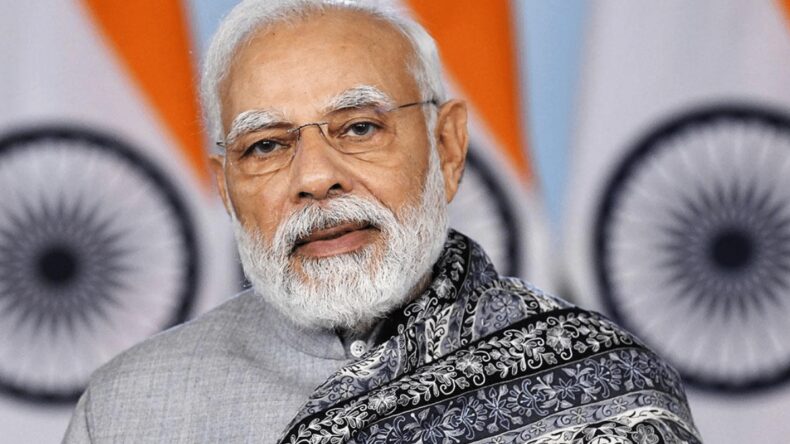The Indian government has blocked the airing of a BBC documentary that questioned Prime Minister Narendra Modi’s leadership during the 2002 Gujarat riots. The government has also issued directions to prevent the sharing of any clips from the documentary via social media, using emergency powers available under the country’s information technology rules.
Highlights
The Indian government has used emergency powers to block the airing of a BBC documentary that questioned Prime Minister Narendra Modi’s leadership during the 2002 Gujarat riots, which left over 1,000 people dead, most of them Muslims. The government has also issued orders to Twitter and YouTube to block over 50 tweets linking to the video of the documentary and any uploads of the video. According to Kanchan Gupta, an adviser to the government, both YouTube and Twitter have complied with the government’s instructions. The violence in Gujarat happened when Modi was the chief minister of the state, and it was triggered after a train carrying Hindu pilgrims caught fire, killing 59 people.

Human rights activists have estimated that the death toll in the 2002 Gujarat riots was at least double the official government count of over 1,000 people. Modi often denies accusations that he failed to stop the rioting. In 2012, a special investigation team appointed by the Supreme Court to investigate the role of Modi and others in the violence said in a 541-page report that it could find no evidence to prosecute the then-Gujarat chief minister. Modi went on to become the head of the Hindu nationalist Bhartiya Janata Party and led the party to power in the general elections in 2014 and 2019.
What is in the controversial documentary?
The BBC documentary in question, alleges that a previously unpublished report from the UK Foreign Office holds Prime Minister Narendra Modi directly responsible for the ‘climate of impunity’ that enabled the 2002 Gujarat violence to take place. The riots started on February 28, 2002, a day after 59 people on the Sabarmati Express – volunteers of Hindu organizations – died when their coach was set on fire at Gujarat’s Godhra station. The cause of the fire is a subject of dispute to this day.
The collusion of Police:
The BBC documentary also states that the report found collusion of the police in the Gujarat riots, that the police were asked to stand back and allow the violence to happen. The documentary also refers to a European Union inquiry report in 2012, which found that several ministers had taken an active part in the violence and the senior police officers were instructed not to intervene in the rioting. Former police officers who had previously testified in court to be present at a meeting where Modi gave these instructions have since faced arrests in different cases.
Modi acknowledged he couldn’t handle the media very well:

The BBC documentary states that while Prime Minister Modi is known for being not very media-friendly, he did agree to an interview with BBC reporter Jill McGivering. During the interview Modi was found asking her to correct her information and dismissed allegations of mishandling law and order, calling it misguided information and false propaganda. Later in the interview, when asked what he could have done better, Modi said that he could have handled the media better.
It will be impossible to reconcile when Modi remains in power:
The documentary claims that reconciliation with those bringing claims of persecution against the then-state government will not be possible as long as Prime Minister Modi is in power. It refers to former head of Gujarat police intelligence RB Sreekumar and another state police officer Sanjiv Bhatt, who testified that Modi gave orders to the police to stand by. Last year Sreekumar was detained for fabrication of false evidence along with Bhatt who is already in jail for another matter.
The documentary also states that the UK imposed a diplomatic boycott and a ‘de facto travel ban’ against Prime Minister Modi around 2005, in the aftermath of the Gujarat riots. This was later revoked.
“Documentary- A Propaganda Piece”
The Ministry of External Affairs in India has criticized the BBC documentary about the 2002 Gujarat riots, calling it a propaganda piece that lacks objectivity and reflects a colonial mindset. The documentary, which examines certain aspects of the riots that took place when Prime Minister Narendra Modi was the chief minister of the state, has been met with criticism by the ministry for its bias and lack of objectivity.

Opposition parties in India have accused the Modi government of censorship in relation to the BBC documentary. Congress and the TMC have criticized the government for attempting to suppress the documentary.
Additionally, a group of 302 former judges, ex-bureaucrats, and veterans have also criticized the documentary. They have made a statement that they believe the documentary is an example of past British imperialism in India, and that it aims to revive Hindu-Muslim tensions which were largely the result of the British Raj’s policy of divide and rule.
Former DGMO Lt Gen AK Choudhary has alleged that the documentary in question is part of a planned agenda by the BBC to tarnish India’s image and that the broadcaster is not being impartial in its coverage. He also claims that the documentary aims to mislead people and that Muslims in India are safe. Vikram Singh, former DGP of Uttar Pradesh, has also criticized the documentary, stating that instead of criticizing PM Modi, the BBC should focus on the actions of historical figures such as Winston Churchill during the Bengal Famine. He also expressed that India will not tolerate such agendas and that the BBC should be ashamed for creating the documentary.












